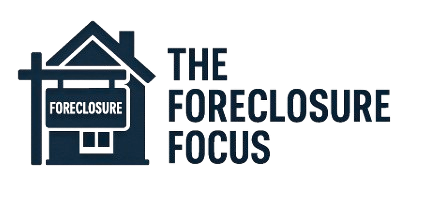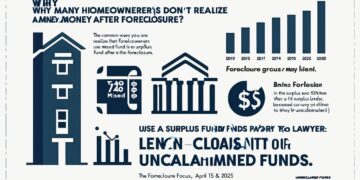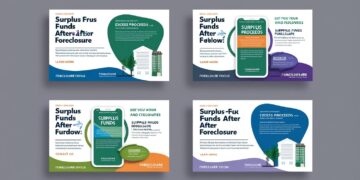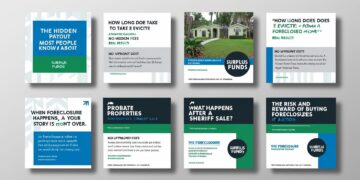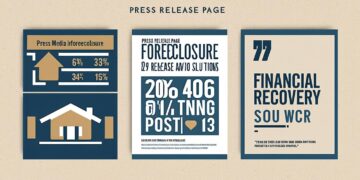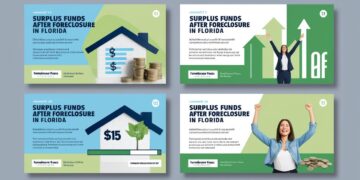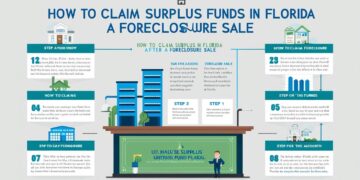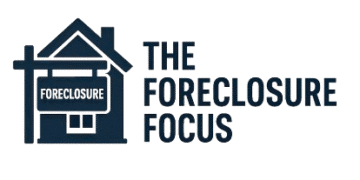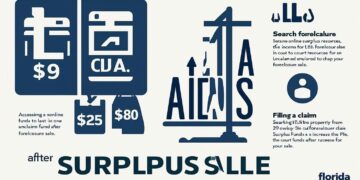Many former property owners don’t realize they may be entitled to excess funds following a foreclosure sale—experts warn millions go unrecovered each year.
For many, the foreclosure process marks the end of a difficult financial journey. But in a surprising number of cases, it may also represent a missed opportunity.
Across the United States, when a property is sold at auction after foreclosure, it can sometimes sell for more than the amount owed on the mortgage. The difference—called surplus funds or excess proceeds—is legally owed to the former homeowner or their heirs. However, a large percentage of this money is never claimed.
Billions Left Behind Nationwide
In states like Florida, Ohio, and Indiana, foreclosure sales are public and often competitive, with investors bidding well above the lender’s judgment amount. Yet, due to lack of awareness, many homeowners have no idea that they are entitled to claim the remaining funds. In some jurisdictions, unclaimed surplus is eventually transferred to the state as unclaimed property or absorbed into government coffers.
Legal analysts and consumer rights advocates say this gap in knowledge is costing everyday Americans millions each year.
“There’s an assumption that once a property is lost to foreclosure, any equity is lost with it. But that’s not always true,” said one real estate attorney familiar with foreclosure litigation. “If the sale brings in more than what was owed, the law entitles the former owner to that balance.”
Complex Process, Limited Time
While the legal right to claim surplus funds exists, the process to retrieve those funds is not always straightforward. It typically involves petitioning the court, submitting documentation, and adhering to strict deadlines. In some states, the window to file a claim may be as short as 60 to 90 days.
Additionally, the court doesn’t notify all parties proactively in every case, especially when heirs are involved or the homeowner has passed away.
Heirs Often Left in the Dark
One of the most overlooked groups in this process are heirs managing estates after a death. If a property was foreclosed on after the original owner passed, surviving relatives may be unaware that any funds remain from the sale. These funds are still recoverable in many cases, but only if action is taken in time.
Watch Out for Scams
Unfortunately, the confusion surrounding surplus funds has also attracted fraud. Unscrupulous actors sometimes contact homeowners with misleading promises or false paperwork. Experts advise verifying any communication related to foreclosure recovery with the local court or a licensed attorney.
What Can Be Done
State agencies, nonprofit groups, and legal aid centers continue to work on raising awareness about surplus fund recovery. Some states provide searchable public databases for unclaimed foreclosure proceeds, while others require individuals to take legal initiative to uncover what may be owed.
Those who recently lost a home to foreclosure—or who are managing the affairs of a deceased relative—are encouraged to review court records or contact the clerk of courts in the county where the property was sold to determine whether surplus funds remain.
